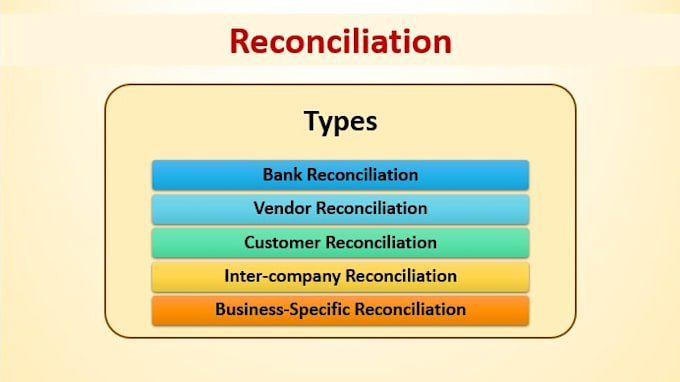Marketing Degree Classification: Bachelor of Arts or Bachelor of Science?
Marketing degree classification: bachelor of arts or bachelor of science?
When pursue higher education in marketing, one of the first decisions students face is whether to earn a bachelor of arts (BA) or a bachelor of science (BS) in marketing. This distinction go beyond mere terminology and can importantly impact your educational experience and career trajectory. Understand the differences between these degree classifications help prospective students make informed decisions align with their professional goals.
Understand the core difference between BA and BS degrees
The fundamental distinction between a bachelor of arts and a bachelor of science in marketing lie in the educational approach and curriculum focus.
Bachelor of arts in marketing
A BA in marketing typically embrace a liberal arts foundation. These programs emphasize:
- Broader humanities’ coursework
- Communication and writing skills
- Creative aspects of marketing
- Consumer psychology and behavior
- Cultural and social influences on marketing
- Foreign language requirements (frequently )
Ba programs tend to develop wellspring rounded marketers with strong communication abilities and creative thinking skills. The curriculum frequently includes fewer mathematics and technical courses, focus alternatively on theoretical concepts and qualitative analysis.
Bachelor of science in marketing
A BS in marketing typically adopt a more technical and analytical approach. These programs emphasize:
- Quantitative analysis and research methods
- Statistics and data interpretation
- Marketing analytics and metrics
- Technical marketing tools and software
- Business and economics coursework
- Scientific methodology apply to marketing problems
Bs programs prepare students to tackle marketing challenges through data drive decision-making and analytical reasoning. The curriculum typically includes more mathematics, statistics, and technical courses than aBAa program.
Curriculum comparison: what you will study
Typical BA in marketing curriculum
A bachelor of arts in marketing ofttimes include courses such as:
- Marketing communications
- Consumer behavior
- Brand management
- Advertising and promotion
- Public relations
- Social media marketing
- Marketing ethics
- Cultural studies
- Psychology
- Foreign languages
- Creative writing
The distribution requirements typically include more humanities and social science electives, allow students to explore diverse subjects that complement their marketing focus.
Typical BS in marketing curriculum
A bachelor of science in marketing oft include courses such as:
- Marketing research methods
- Marketing analytics
- Statistics for business
- Digital marketing technologies
- Database marketing
- Market analysis
- Economics
- Finance for marketers
- Operations management
- Information systems
- E-commerce technology
The distribution requirements typically include more science, mathematics, and technical business courses, create a foundation for data drive marketing approaches.
How universities classify marketing degrees
The classification of marketing degrees vary importantly across educational institutions. This variation stem from several factors:
Business school affiliation
Marketing programs house within business schools or colleges oftentimes award BS degrees, reflect the business discipline’s progressively quantitative nature. These programs typically require a substantial business core curriculum alongside marketing specialization courses.
Liberal arts college tradition
Marketing programs within liberal arts colleges oft award BA degrees, emphasize the interdisciplinary nature of marketing within the broader context of human behavior and communication studies.
Institution specific philosophy
Some universities make deliberate choices about degree classification base on their educational philosophy. For example, an institution might offer a BA in marketing to emphasize the creative and communicative aspects of the field, while another might offer a BS to highlight its analytical approach.
Historical precedent
In some cases, the degree classification reflects historical development sooner than a clear curriculum distinction. Some institutions have traditionallyofferedr all business relate degrees as eithBA ba BS bs programs, disregarding of specific content differences.
Career implications of BA vs. Bs in marketing
While both degree types prepare students for careers in marketing, certain specializations may align advantageously with one classification over the other.
Career paths better suited for BA graduates
Ba in marketing graduates frequently excel in roles that require strong communication, creativity, and understanding of human behavior:
- Advertising creative director
- Brand manager
- Public relations specialist
- Content marketing strategist
- Social media manager
- Marketing communications coordinator
- Community engagement specialist
Career paths better suited for BS graduates
Bs in marketing graduates oft thrive in roles require analytical skills, technical knowledge, and data interpretation:
- Marketing analyst
- Market research specialist
- Digital marketing technologist
- E-commerce marketing manager
- Marketing operations manager
- SEO / SEM specialist
- Marketing data scientist
Employer perspectives
Most employers in the marketing field focus more on skills, experience, and portfolio kinda than the specific type of degree. Nonetheless, some specialized roles may prefer candidates with particular educational backgrounds:
- Technical marketing roles may favor BS graduates for their stronger quantitative preparation
- Creative agencies might prefer BA graduates for their broader humanities background
- Data drive marketing departments might seek BS graduates for their analytical capabilities
- International marketing teams might value BA graduates with language and cultural studies
Make the right choice: BA or BS in marketing?
When decide between a BA and BS in marketing, consider these factors:
Personal strengths and interests
Assess your natural inclinations and preferences:

Source: studylib.net
- Do you enjoy writing, psychology, and creative work? A BA might be more fulfilling.
- Do you excel at mathematics, enjoy work with data, and prefer structured problem solve? A BS might advantageously suit your strengths.
Career aspirations
Consider your long term professional goals:
- If you aim for creative leadership roles in advertising or brand management, a BA could provide relevant foundations.
- If you envision work in marketing analytics, market research, or digital marketing technology, a BS might offer better preparation.
Program specific curriculum
Beyond the degree classification, examine the actual courses offer:
- Some BA programs include substantial quantitative coursework
- Some BS programs incorporate significant creative and communication components
- The specific curriculum may matter more than the degree designation
Graduate school considerations
If you plan to pursue advanced degrees, consider how your undergraduate choice might influence your options:
- MBA programs typically accept both BA and BS graduates
- Specialized graduate programs in marketing analytics might prefer BS backgrounds
- Advanced degrees in advertising or consumer psychology might value BA foundations
Hybrid and specialized marketing degree programs
Many institutions directly offer innovative approaches that blend elements of both BA and BS traditions or provide specialized marketing concentrations.
BBA (bachelor of business administration )in marketing
Many business schools offer a BBA in marketing, which typically combine:

Source: css.edu
- A comprehensive business core curriculum
- Specialized marketing courses
- Both quantitative and qualitative marketing approaches
- Professional skills’ development
This degree classification oft serves as a middle ground between traditionalBAa andBSs programs.
Specialized marketing degrees
Some institutions offer specialized marketing degrees with distinct focuses:
- Bachelor of science in digital marketing
- Bachelor of arts in advertising and marketing communications
- Bachelor of science in marketing analytics
- Bachelor of arts in global marketing
These specialized programs oftentimes have clearer curriculum alignments with their degree classifications.
Industry trends influencing marketing education
The marketing field continues to evolve, influence how universities structure their degree programs:
Increase emphasis on data analytics
The growth importance of data in marketing haleadedad many programs, disregarding of classification, to incorporate more analytical components. BAt ba programs nowadays oftentimes include courses in marketing metrics, basic analytics, and data drdecision-makingking.
Digital marketing integration
Both BA and BS programs have adapted to include substantial digital marketing content, though they may approach it otherwise:
- Ba programs might emphasize content strategy, social media engagement, and digital storytelling
- Bs programs might focus on SEO techniques, conversion optimization, and digital marketing analytics
Cross-disciplinary approaches
Many marketing programs nowadays incorporate elements from other disciplines:
- Psychology and neuroscience (consumer behavior )
- Computer science (marketing technology )
- Data science (predictive analytics )
- Design thinking (user experience )
These cross-disciplinary elements may appear in both BA and BS programs but with different emphases.
Practical considerations beyond degree classification
While the BA vs. Bs distinction matters, several other factors should influence your program selection:
Accreditation
Business school accreditation (especially aAACSaccreditation ))ft signal program quality careless of whether the marketing degree is offer as a ba BA bs.BS
Experiential learning opportunities
Programs that offer substantial hands-on experiences through internships, client projects, and marketing competitions provide valuable professional preparation disregarding of degree classification.
Faculty expertise and industry connections
The qualifications of faculty members and their connections to the marketing industry can importantly impact the value of your education, much more than the BA / BS distinction.
Technology resources
Access to current marketing technologies, software, and analytics tools provide practical skills that employers value, careless of degree type.
Conclusion: make an informed decision
Whether marketing is a bachelor of arts or science doesn’t have a definitive answer. Both degree classifications offer valid pathways into the marketing profession, with different emphases that may intimately suit different students.
Instead, than focus solely on theBAa vs. Bs distinction, prospective marketing students should:
- Cautiously review specific program curricula beyond the degree designation
- Consider personal strengths, interests, and career aspirations
- Evaluate the quality indicators of each program, include accreditation and experiential learning opportunities
- Speak with alumni and industry professionals about how different programs are perceived
The marketing field continue to value both the creative, communicative skills traditionally associate with BA programs and the analytical, technical capabilities emphasize in BS programs. The virtually successful marketers oftentimes develop both skill sets throughout their education and career, careless of their initial degree classification.
Finally, your success in marketing will depend more on how you’ll leverage your educational experiences, build your professional network, and will continue will learn throughout your career than on whether your diploma read” bachelor of arts ” r “” chelor of science. ”



